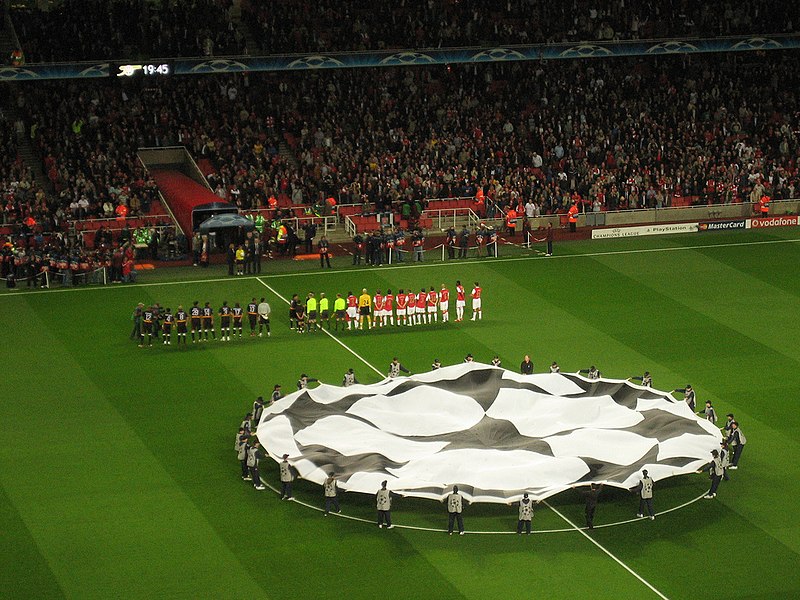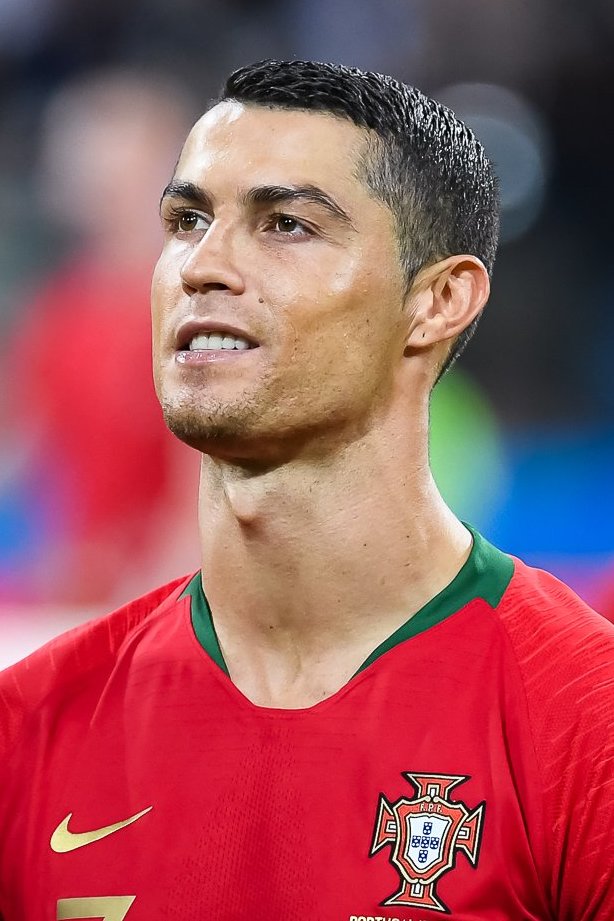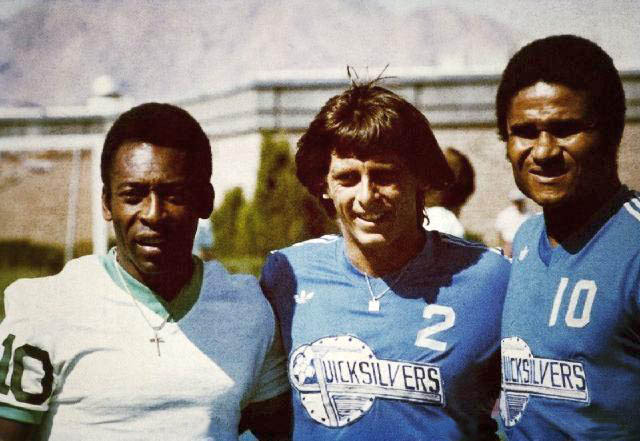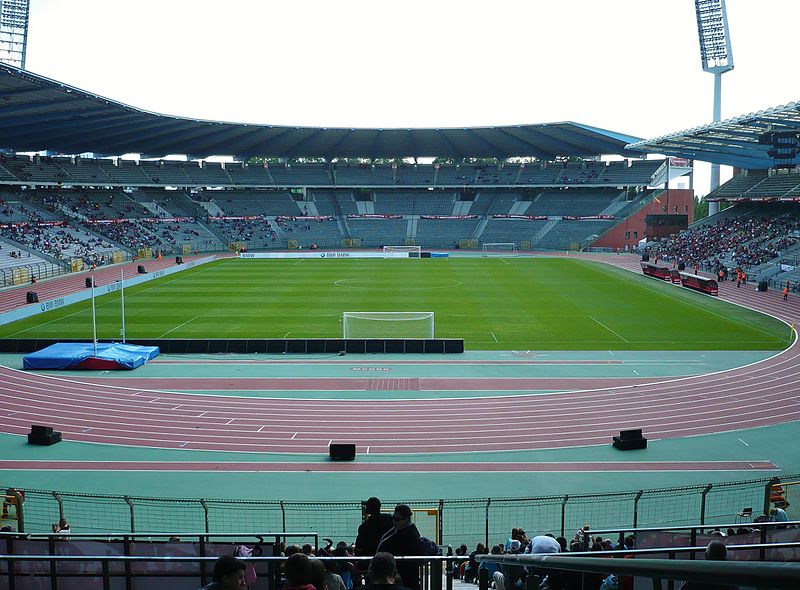1965–66 European Cup - Real Madrid Won Title

The UEFA Champions League, historically known as the European Cup and commonly abbreviated worldwide as the UCL, is an annual club association football competition organized by the Union of European Football Associations (UEFA). It is contested by top-division European clubs, with competition winners determined through a round-robin group stage to qualify for a double-legged knockout format and a single-leg final. It stands as the most-watched club competition globally and the third-most-watched football competition overall, surpassed only by the UEFA European Championship and the FIFA World Cup. Regarded as one of the most prestigious football tournaments globally, it is the foremost club competition in European football, featuring national league champions (and, for some nations, one or more runners-up) from their respective national associations.
Introduced in 1955 as the Coupe des Clubs Champions Européens (French for European Champion Clubs' Cup), commonly known as the European Cup, it initially functioned as a straight knockout tournament exclusively for the champions of Europe's domestic leagues, with the winner recognized as the European club champion. The competition adopted its current name and format in 1992, incorporating a round-robin group stage in 1991 and permitting multiple entrants from certain countries starting from the 1997–98 season. Over time, it has expanded, allowing the strongest leagues to provide up to four teams, although most of Europe's national leagues can still only enter their champion. Clubs that finish as runners-up in their national league, having not qualified for the Champions League, are eligible for the second-tier UEFA Europa League competition. Additionally, since 2021, they can participate in the third-tier UEFA Europa Conference League.
In its current format, the Champions League kicks off in late June with a preliminary round, three qualifying rounds, and a play-off round, all played over two legs. The six surviving teams then enter the group stage, joining 26 teams qualified in advance. The 32 teams are drawn into eight groups of four teams, playing each other in a double round-robin system. The top eight group winners and eight runners-up proceed to the knockout phase, culminating in the final match in late May or early June. The Champions League winner automatically qualifies for the following year's Champions League, the UEFA Super Cup, the FIFA Club World Cup, and, as of 2024, the new FIFA Intercontinental Cup, replacing the previous annual format of the Club World Cup (Note: This format will be changed once again as of 2024).
Spanish clubs boast the highest number of victories (19 wins), followed by England (15 wins) and Italy (12 wins). England leads in the number of winning teams, with six clubs having secured the title. The competition has seen 23 different clubs emerge as winners, with 13 of them claiming victory more than once, and eight successfully defending their title. Real Madrid stands as the most successful club in the tournament's history, having secured victory 14 times and being the only club to clinch three consecutive titles (in the years 2016, 2017, and 2018), achieved under the management of Zinedine Zidane. Only one club has won all their matches in a single tournament en route to victory: Bayern Munich in the 2019–20 season. As of the most recent update, Manchester City is the reigning European champion, having defeated Inter Milan 1–0 in the 2023 final for their first title.
Cristiano Ronaldo holds the records for most appearances (183), goals (140) and assists (42). Here the link is that has all Cristiano Ronaldo's (GOAT) UCL goals;
https://youtu.be/UK5cu3LJ9qk?si=6gxD9mAmbjZ6KBse
Here are the UEFA Champions League winners up to the 2023-2024 season:
1955-56: Real Madrid1956-57: Real Madrid
1957-58: Real Madrid
1958-59: Real Madrid
1959-60: Real Madrid
1960-61: Benfica
1961-62: Real Madrid
1962-63: AC Milan
1963-64: Inter Milan
1964-65: Inter Milan

1966-67: Celtic
1967-68: Manchester United
1968-69: AC Milan
1969-70: Feyenoord
1970-71: Ajax
1971-72: Ajax
1972-73: Ajax
1973-74: Bayern Munich
1974-75: Bayern Munich
1975-76: Bayern Munich
1976-77: Liverpool
1977-78: Liverpool
1978-79: Nottingham Forest
1979-80: Nottingham Forest
1980-81: Liverpool
1981-82: Aston Villa
1982-83: Hamburg
1983-84: Liverpool


1986-87: FC Porto
1987-88: PSV Eindhoven
1988-89: AC Milan
1989-90: AC Milan
1990-91: Red Star Belgrade
1991-92: FC Barcelona
1992-93: Marseille
1993-94: AC Milan
1994-95: Ajax
1995-96: Juventus
1996-97: Borussia Dortmund
1997-98: Real Madrid
1998-99: Manchester United
1999-00: Real Madrid
2000-01: Bayern Munich
2001-02: Real Madrid
2002-03: AC Milan
2003-04: FC Porto
2004-05: Liverpool
2005-06: FC Barcelona
2006-07: AC Milan
2007-08: Manchester United
2008-09: FC Barcelona
2009-10: FC Internazionale Milano (Inter Milan)
2010-11: FC Barcelona
2011-12: Chelsea
2012-13: Bayern Munich
2013-14: Real Madrid
2014-15: FC Barcelona
2015-16: Real Madrid
2016-17: Real Madrid
2017-18: Real Madrid
2018-19: Liverpool

2020-21: Chelsea


1965–66 European Cup
The 1965–66 season of the European Cup football club tournament was won by Real Madrid, winners of the first five European Cups from 1956 to 1960, for the sixth time in a close final against Partizan. Real Madrid eliminated title-holders Internazionale in the semi-finals.
Teams that participated in the tournament;
Bracket;
Top scorer table of the 1965-66 European Cup;
Florian Albert and Eusenio shared the first position at the 1965-66 European Cup tournament
One of the top scorer of the tournament Florian Albert;

Flórián György Albert (15 September 1941 – 31 October 2011) was a Hungarian professional football player, manager and sports official, who was named European Footballer of the Year in 1967. Nicknamed "The Emperor", he played as a forward, and has been described as one of the most elegant footballers of all time.
A club legend of Ferencvárosi TC, Albert joined the team as a schoolboy and spent his whole playing career at Fradi. He also starred for Hungary, winning 75 international caps and scoring 31 goals. He was joint top-scorer at the 1962 World Cup with four goals and played a key role in Hungary's third-place finish at the European Championship in 1964.
He stayed loyal to Ferencváros after his retirement as well, actively participated in the club's life and also held administrative positions. From 2007 the stadium of Ferencváros beared his name, until 2014 when the new stadium of the team was constructed, named “Groupama Arena”.
Albert died in October 2011, aged 70, in a hospital in Budapest after complications following heart surgery carried out a few days earlier.
His national team career;
One of the top scorer of the tournament Eusebio;

Eusébio da Silva Ferreira (25 January 1942 – 5 January 2014), nicknamed the "Black Panther," the "Black Pearl," or "O Rei" ("The King"), was a Portuguese footballer who played as a striker. He is considered one of the greatest players of all time, as well as Benfica's best player ever. He was known for his speed, technique, athleticism, and right-footed shot, making him a prolific goalscorer, accumulating 733 goals in 745 matches.
Eusébio helped Portugal reach third place at the 1966 FIFA World Cup, being the top goalscorer of the tournament with nine goals. He won the Ballon d'Or in 1965 and was the runner-up in 1962 and 1966. He is Benfica's all-time top scorer with 473 goals in 440 competitive matches. There, his honors include eleven Primeira Liga titles and a European Cup, also being integral in reaching additional European Cup finals in 1963, 1965, and 1968. He is the second-highest goalscorer, behind Alfredo Di Stéfano, in the pre-Champions League era of the European Cup with 48 goals. He was the European Cup top scorer in 1964–65, 1965–66, and 1967–68. He also won the Bola de Prata for the Primeira Liga top scorer a record seven times. He was the first-ever player to win the European Golden Boot in 1968, a feat he replicated in 1973.
From his retirement until his death, Eusébio was an ambassador of football and one of the most recognizable faces of his generation. His name often appears in lists of the best players of all time, as per polls by football critics and fans. He was elected the ninth-best footballer of the 20th century in a poll by the IFFHS and the tenth-best footballer of the 20th century in a poll by World Soccer magazine. Pelé named Eusébio as one of the 125 best living footballers in his 2004 FIFA 100 list. He was seventh in the online poll for the UEFA Golden Jubilee Poll. In November 2003, to celebrate UEFA's Jubilee, he was selected as the Golden Player of Portugal by the Portuguese Football Federation as their most outstanding player of the past 50 years. Shortly after Eusébio's death, Di Stéfano stated: "For me, Eusébio will always be the best player of all time."
Here is a video that Original FIFA youtube account shared about Eusebio;
https://www.youtube.com/watch?v=5yySFaJe1yg
Here is Eusebio's skills&goals video I recommend you to watch;
References;
- 1965–66 All matches – season at UEFA website
- European Cup results at Rec.Sport.Soccer Statistics Foundation
- All scorers 1965–66 European Cup (excluding preliminary round) according to protocols UEFA
- 1965/66 European Cup – results and line-ups (archive)
- Y. Lander, European Cups History, part 1 (Kharkiv, 2003) – some attendance data.
- "Flórián György Albert". eu-football.info. Retrieved 24 April 2023.
- "Hungarian great Florian Albert dies aged 70". Liverpool Echo. 1 November 2011. Retrieved 3 November 2011.
- ^ "Hungarian Ballon d'Or winner Albert dies". UEFA. 31 October 2011. Archived from the original on 1 November 2011. Retrieved 31 October 2011.
- ^ "Partizani v Köln, 9 September 1964" . Union of European Football Associations. Retrieved 12 March 2022.
- ^ "Real Madrid v Dukla Prague, 18 November 1964" . Union of European Football Associations. Retrieved 12 March 2022.
- ^ "Real Madrid v Benfica, 17 March 1965" . Union of European Football Associations. Retrieved 12 March 2022.
Thank you for reading my article and giving your time for it !
#football #sports #sportnews #EuropeanCup #Eusebio #FlorianAlbert #RealMadrid #ChampionsLeague #Partizan #Footballnews


































































































